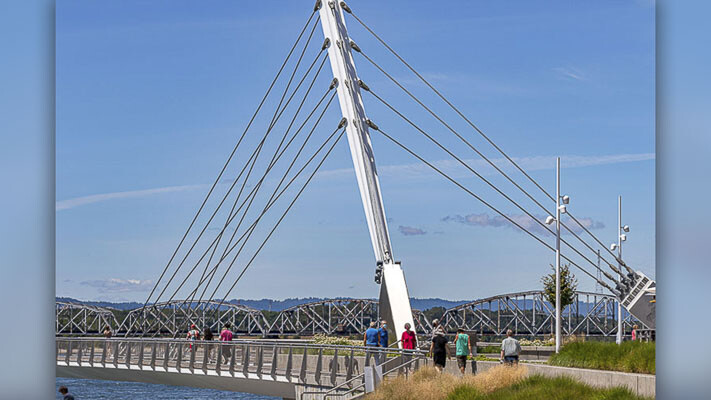
DOH offers tips to stay cool and safe
The National Weather Service (NWS) is forecasting above-average temperatures for areas across Washington this upcoming July 4 and for the remainder of the week. While warmth and sunshine are often welcome news over a summer holiday week, it is also important to keep in mind high heat is the most dangerous weather seen in Washington.
According to the NWS, there is no rain in the forecast until at least Thursday. Dry conditions, combined with high temperatures and low relative humidity will lead to elevated critical fire weather conditions across the state this week. People should take steps to prepare to safely enjoy the holiday.
Moderate to extreme heat can lead to dehydration, exhaustion, injury, and death. Infants and young children, older people, and those with health conditions and access or functional needs are especially at risk. Outdoor laborers are also at increased risk. During the 2021 heat wave,100 people died from preventable heat-related causes over the course of just one week.
The Washington State Department of Health (DOH) has these tips for staying cool and safe during heat events:
• Watch the forecast. Knowledge can help you to plan activities so that you and your family are not caught outside or in confined and unventilated spaces during the hottest part of the day. Save strenuous activities for the early morning or evening after the sun goes down. If you must work outdoors, make sure you have water and access to shade.
• Dress for the weather. Wear loose, breathable clothing, wide-brim hats, and stay in the shade. A sunscreen with high UV protection is a good precaution.
• Drink plenty of non-alcoholic fluids. Sweat will quickly drain your body of vital moisture. Tap water is perfectly fine for cooling off and to rehydrate. Make sure you keep some with you during outdoor activities and in your car for emergencies.
• Keep your home cool. In the morning, close your windows and blinds to keep out the heat and to retain the cool air inside your insulated home. Use fans to move cool air inside. After the sun goes down, you can open your windows again to let in the cooler evening air.
Head to a cooling center. If you are not able to keep your home cool, go to a nearby cooling center. These facilities are equipped with air conditioning, shade, and water to help you weather a heat wave.
Prevent wildfires. Know the current wildfire risk in your county, follow burn bans, and practice campfire and firework safety.
For more tips and information about resources in your region, visit the DOH website.
The DOH website is your source for a healthy dose of information. Find us on Facebook and follow us on Twitter. Sign up for the DOH blog, Public Health Connection.
Also read:
- Letter: ‘We’re going to give them some money and a plane ticket, and then we’re going to work with them’Camas resident Anna Miller supports a new structured self-deportation policy, calling it a balanced approach to immigration and economic needs.
- Pro-Palestinian protesters occupy UW building, 30 arrestedAbout 30 protesters were arrested at the University of Washington after occupying a building and demanding the school cut ties with Boeing.
- Sen. Braun praises UW officials for response to Monday protests, calls for prosecutionsSen. John Braun praised UW officials for their firm response to violent protests tied to the university’s relationship with Boeing.
- Largest parade in Southwest Washington bands together for a better tomorrowThe 59th annual Parade of Bands in Hazel Dell will feature 24 high school bands and more than 120 entries on May 17.
- Don’t leave tax dollars on the table; learn about county’s tax exemption program at May 16 event in WashougalClark County tax exemption specialists will assist seniors and people with disabilities during a May 16 event in Washougal.
- Trades Tuesday is here, hoping to become a trend in area schoolsA new campaign is launching in area schools to inspire students to consider careers in the trades.
- Opinion: What the 2025 legislature tells us about why Washington’s government keeps failingTodd Myers of the Washington Policy Center argues that Washington’s government fails because it resists humility, experimentation, and accountability in its policymaking.











